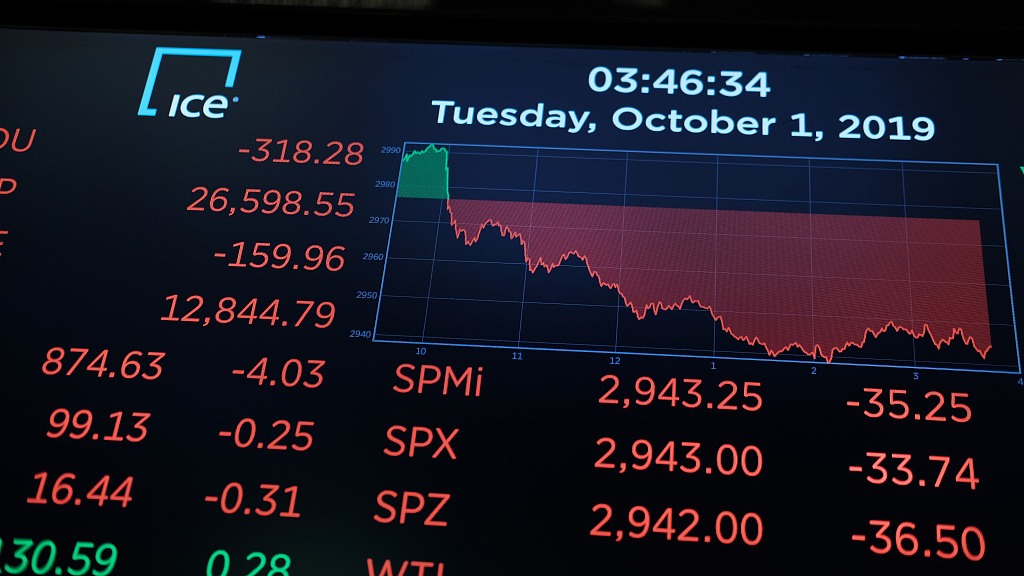00:35

U.S. manufacturing index in September slumped to the lowest level in a decade amid protracted trade tensions, according to data released by the Institute for Supply Management (ISM) on Tuesday.
The U.S. Purchasing Managers' Index (PMI) fell to 47.8 percent in September, a decrease of 1.3 percentage points from the previous month and the lowest since June 2009. A reading below 50 indicates a contraction in the manufacturing sector, which accounts for about 11 percent of the U.S. economy.
ISM data also showed that the new export orders index was only 41 percent, the lowest level since March 2009, down from the August reading of 43.3 percent.
The inventories index was 46.9 percent, a three-point drop from August's reading of 49.9 percent, while the production index declined to 47.3 percent, 2.2 percent lower than the previous month.
A continuing decrease in business confidence
"Comments from the panel reflect a continuing decrease in business confidence. September was the second consecutive month of PMI contraction, at a faster rate compared to August," Timothy Fiore, chair of the ISM's manufacturing business survey committee, said in a statement.
"Global trade remains the most significant issue, as demonstrated by the contraction in new export orders that began in July 2019. Overall, sentiment this month remains cautious regarding near-term growth," he said.
Of the 18 manufacturing industries, only three reported growth in September, including miscellaneous manufacturing; food, beverage and tobacco products; and chemical products, according to the ISM.

Tariffs are taking a toll on business
The latest disappointing manufacturing data confirmed that Washington's tariffs against imports from China and other trading partners continued to take a toll on American businesses and the overall economy.
"Tariffs going up are hurting our business. Most of the materials are not made in the U.S. and made only in China," said an executive at a food and beverages manufacturer.
"Economy seems to be softening. The tariffs have caused much confusion in the industry," added another executive from the industry of electrical equipment, appliances and components.
The U.S. economy expanded at an annual rate of two percent in the second quarter of the year, marking a deceleration from the 3.1-percent growth in the first quarter, according to the Department of Commerce.

The U.S. Federal Reserve in September lowered interest rates for the second time this year, citing weakened business fixed investment and exports, as well as uncertainty over trade.
"The main reasons appear to be slower growth abroad and trade policy developments – two sources of uncertainty that we have been monitoring all year," Fed Chairman Jerome Powell told reporters at a press conference last month.
Wall Street tumbles
Wall Street on Tuesday suffered their worst tumbles in over a month after the U.S. manufacturing survey showed the worst reading in a decade. Investors moved to the safety of U.S. Treasuries after the ISM report.
The Dow Jones Industrial Average fell 343.79 points, or 1.28 percent, to 26,573.04. The S&P 500 decreased 36.49 points, or 1.23 percent, to 2,940.25. The Nasdaq Composite Index went down 90.65 points, or 1.13 percent, to 7,908.69.
(With input from Xinhua)